Publications
Articles, publications, books, tools and multimedia features from the U.S. Institute of Peace provide the latest news, analysis, research findings, practitioner guides and reports, all related to the conflict zones and issues that are at the center of the Institute’s work to prevent and reduce violent conflict.
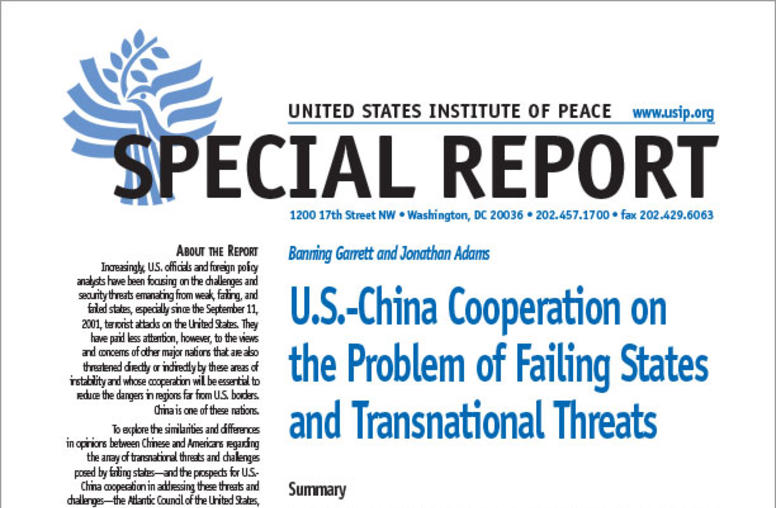
U.S.-China Cooperation on the Problem of Failing States and Transnational Threats
Summary American and Chinese perspectives on the threats and challenges emanating from failing states have been converging, especially since the September 11, 2001, terrorist attack on the United States.
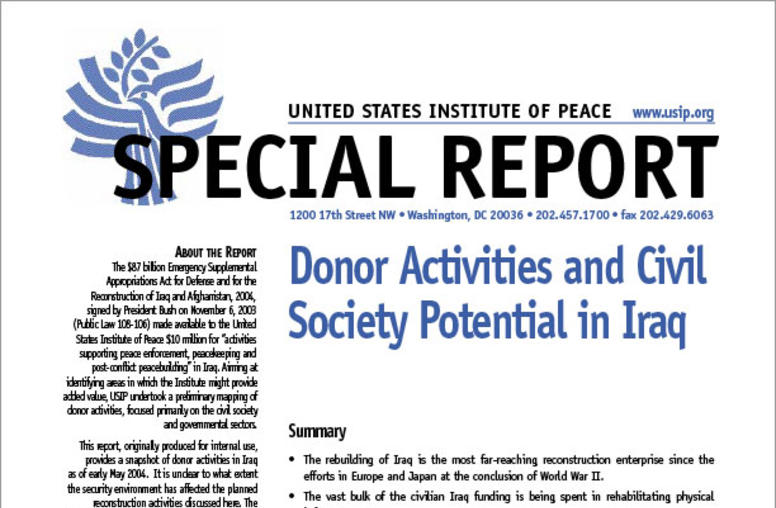
Donor Activities and Civil Society Potential in Iraq
The $87 billion Emergency Supplemental Appropriations Act for Defense and for the Reconstruction of Iraq and Afghanistan, 2004, signed by President Bush on November 6, 2003 (Public Law 108-106) made available to the United States Institute of Peace $10 million for “activities supporting peace enforcement, peacekeeping and post-conflict peacebuilding” in Iraq. Aiming at identifying areas in which the Institute might provide added value, the Institute undertook a preliminary mapping of donor ac...
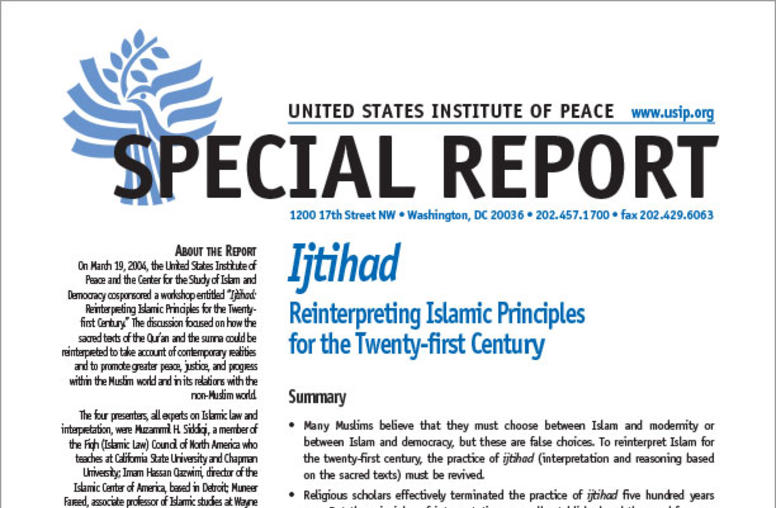
Ijtihad: Reinterpreting Islamic Principles for the Twenty-first Century
Summary Many Muslims believe that they must choose between Islam and modernity or between Islam and democracy, but these are false choices. To reinterpret Islam for the twenty-first century, the practice of ijtihad (interpretation and reasoning based on the sacred texts) must be revived. Religious scholars effectively terminated the practice of ijtihad five hundred years ago. But the principles of interpretation are well established and the need for contemporary interpretation is co...
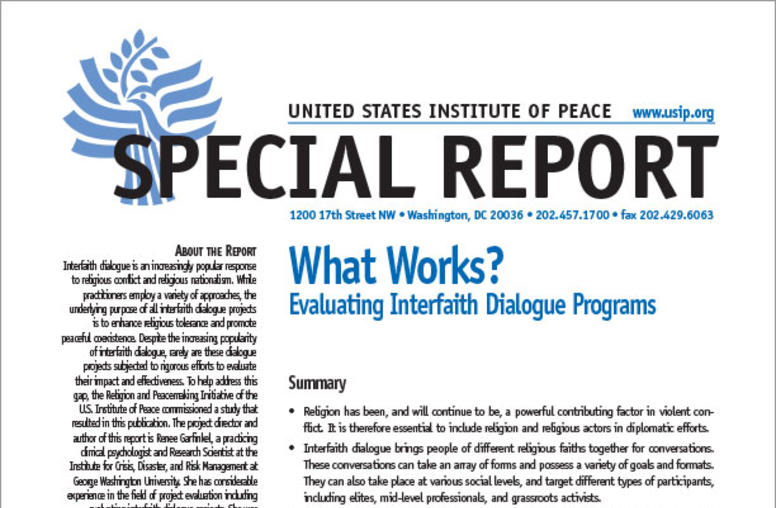
What Works? Evaluating Interfaith Dialogue Programs
Summary Religion has been, and will continue to be, a powerful contributing factor in violent conflict. It is therefore essential to include religion and religious actors in diplomatic efforts.
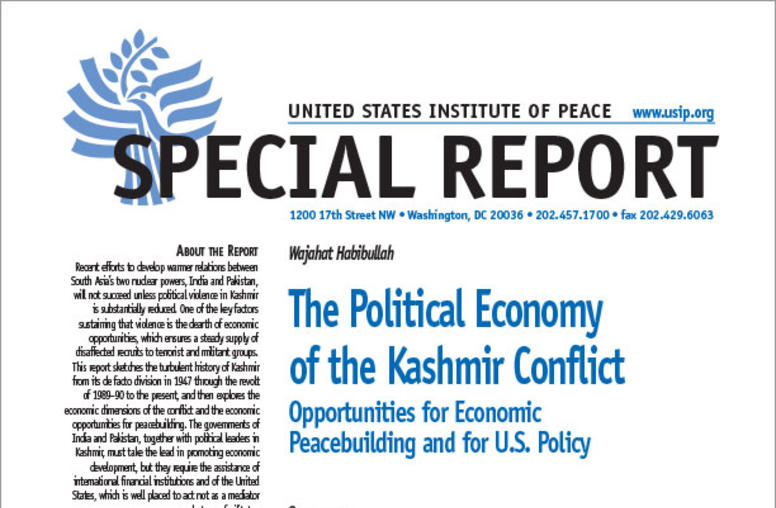
The Political Economy of the Kashmir Conflict: Opportunities for Economic Peacebuilding and for U.S. Policy
Summary The governments of India and Pakistan have recently indicated a desire to develop warmer relations and to settle the issues that divide them by peaceful means. This endeavor will not succeed, however, unless political violence in Kashmir is substantially reduced.
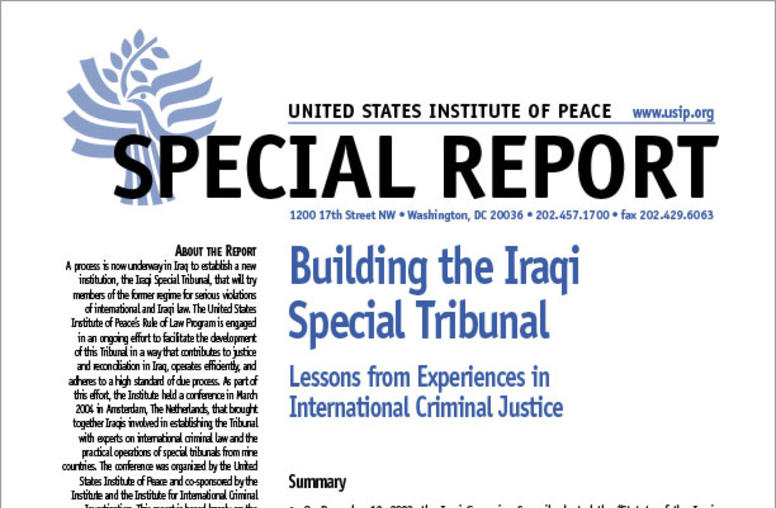
Building the Iraqi Special Tribunal: Lessons from Experiences in International Criminal Justice
A process is now underway in Iraq to establish a new institution, the Iraqi Special Tribunal, that will try members of the former regime for serious violations of international and Iraqi law. The United States Institute of Peace’s Rule of Law Program is engaged in an ongoing effort to facilitate the development of this Tribunal in a way that contributes to justice and reconciliation in Iraq, operates efficiently, and adheres to a high standard of due process.
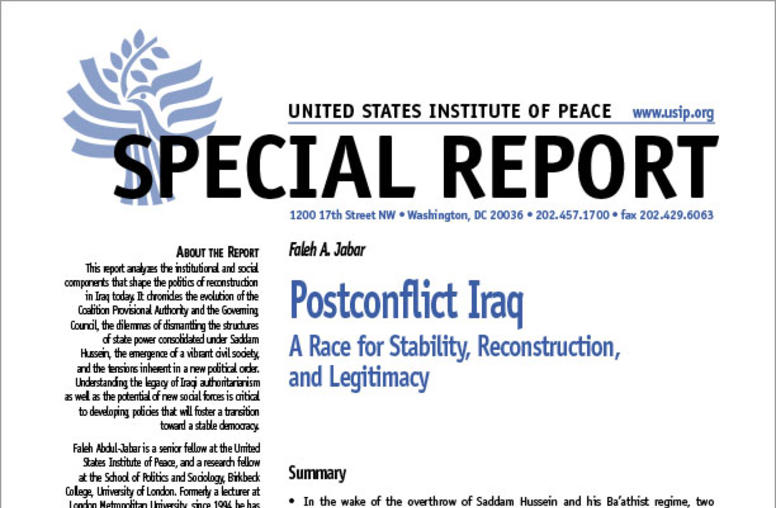
Post-Conflict Iraq: A Race for Stability, Reconstruction, and Legitimacy
This report analyzes the institutional and social components that shape the politics of reconstruction in Iraq today. It chronicles the evolution of the Coalition Provisional Authority and the Governing Council, the dilemmas of dismantling the structures of state power consolidated under Saddam Hussein, the emergence of a vibrant civil society, and the tensions inherent in a new political order.
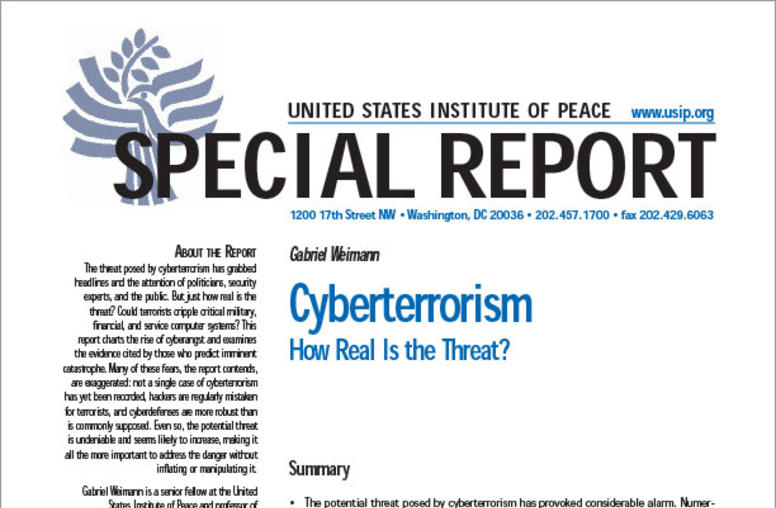
Cyberterrorism: How Real Is the Threat?
Summary The potential threat posed by cyberterrorism has provoked considerable alarm. Numerous security experts, politicians, and others have publicized the danger of cyberterrorists hacking into government and private computer systems and crippling the military, financial, and service sectors of advanced economies.
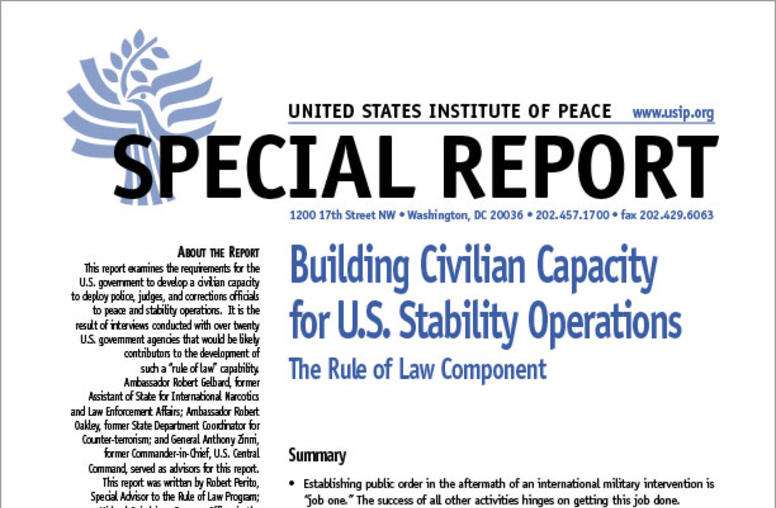
Building Civilian Capacity for U.S. Stability Operations: The Rule of Law Component
Establishing public order in the aftermath of an international military intervention is "job one." The success of all other activities hinges on getting this job done. Military combat units, however, are neither trained nor equipped for riot control and law enforcement functions. No rapidly deployable U.S. civilian capacity exists to provide the full spectrum of rule of law functions—from intelligence to incarceration—needed to support military forces engaged in peace and stability operations...
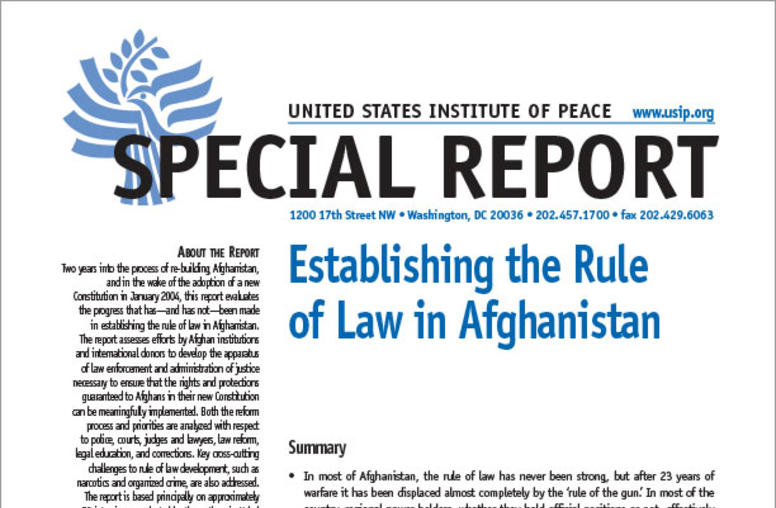
Establishing the Rule of Law in Afghanistan
In most of Afghanistan, the rule of law has never been strong, but after 23 years of warfare it has been displaced almost completely by the 'rule of the gun.' In most of the country, regional power-holders, whether they hold official positions or not, effectively exercise political, police and judicial authority through their control of militia forces.